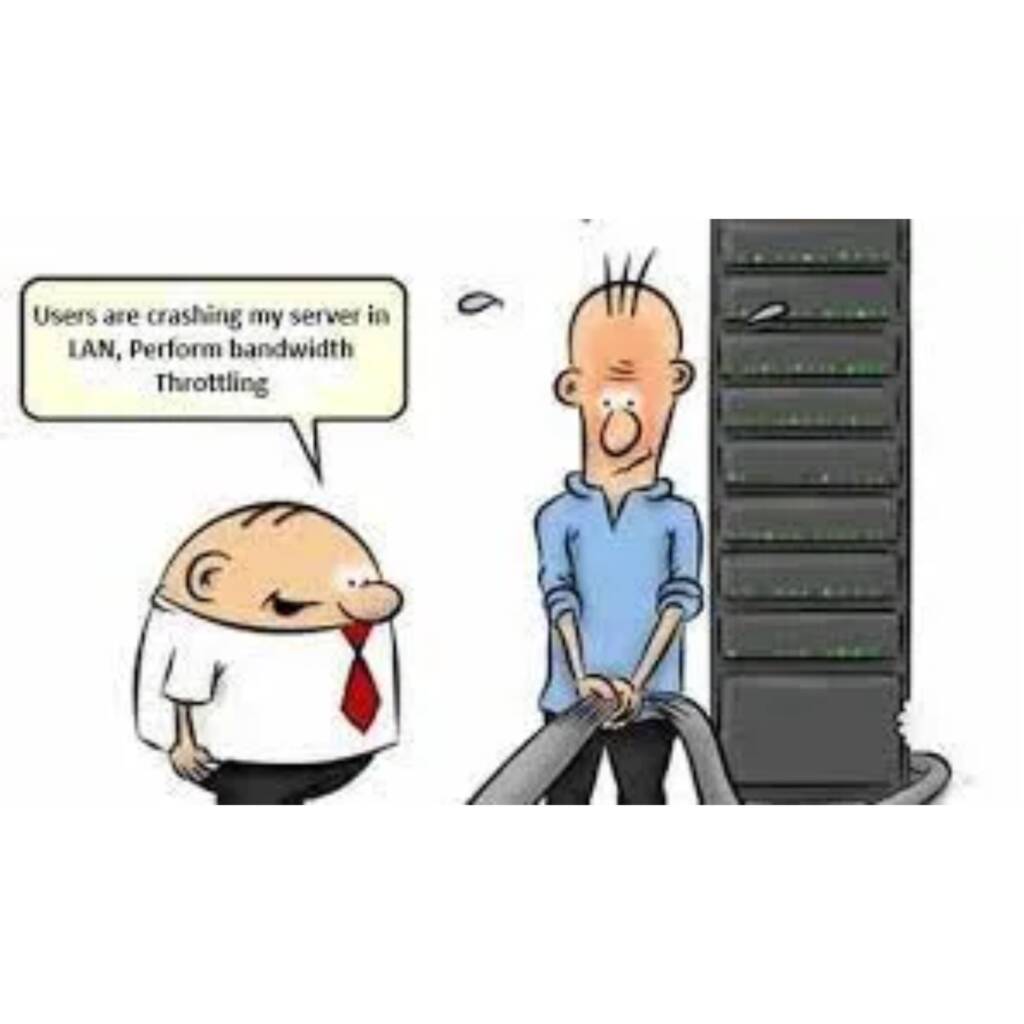What is a VPN, and should I use it for IPTV?

What is a VPN, and should I use it for IPTV? Streaming content has become an indispensable aspect of our entertainment landscape in the contemporary digital era. The utilization of Internet Protocol Television (IPTV) as a convenient avenue for accessing a diverse array of television channels and on-demand content has witnessed a significant surge in popularity. Nonetheless, IPTV presents privacy and security concerns akin to any other online activity. Enter virtual private networks (VPNs), which prove invaluable in such scenarios. This article will explore the essence of VPNs and their relevance to your IPTV provider, service, or subscription.
Understanding IPTV
Before we discuss the benefits of utilizing a VPN for IPTV, let’s define IPTV. Access TV channels and content online with IPTV instead of traditional cable or satellite TV. Customers can access IPTV content on various devices, like PCs, smartphones, tablets, and smart TVs, via internet protocols.
Wide Range of Channels:
IPTV service providers offer an extensive array of channels, encompassing local networks, international broadcasts, and premium content. This diverse selection ensures viewers can access a plethora of programs tailored to their individual interests and preferences. IPTV providers aim to cater to diverse audiences by offering regional news, global shows, and exclusive subscriber content. With a diverse range of channels, IPTV customers have access to a wealth of entertainment options on one platform.
On-demand content is digital media accessible for streaming or download, at the viewer’s convenience, not broadcast at scheduled times. This type of content can include movies, TV shows, documentaries, podcasts, and more. On-demand services provide users with a vast library of content accessible anytime, anywhere, with an internet connection. The popularity of on-demand content has soared due to its flexibility, offering viewers the freedom to watch at their convenience, unrestricted by traditional broadcast schedules.
Multi-Device Compatibility:
IPTV’s compatibility with various devices enables users to enjoy their favourite shows anywhere, whether at home or on the go. Subscribers enjoy the flexibility to customize their entertainment experiences to fit their lifestyles by accessing IPTV on smartphones, tablets, laptops, Android TV boxes, and smart TVs. IPTV’s adaptability ensures that entertainment is readily available, whether commuting, travelling, or at home, meeting the demands of modern living.
Cost-Efficiency:
IPTV subscriptions frequently offer a more economical choice in contrast to traditional cable or satellite television services. This affordability factor renders IPTV an economically sound choice for consumers desiring quality entertainment at reasonable rates. Choosing IPTV provides subscribers with a myriad of channels, on-demand content, and interactive features at a reduced cost compared to traditional cable or satellite TV packages. However, while IPTV presents various benefits, it also raises concerns regarding privacy, security, and geo-references.
The Role of VPNs
What is a VPN, and should I use it for IPTV? A VPN, known as a virtual private network, employs technology to encrypt your internet connection and direct it through a secure server situated in a remote location. This feature holds numerous significant implications for IPTV users:
Enhanced Privacy
When using a VPN, your online actions become anonymous and encrypted, preventing entities like your ISP from accessing your activities. The added security ensures your privacy and data confidentiality by establishing a secure tunnel that prevents your ISP from monitoring your online activities. Enhanced security lets you browse freely, confident that your information is shielded, boosting your digital footprint’s security.
Security
Especially within the realm of public Wi-Fi networks, VPNs play a vital role in safeguarding your data from threats. While using a VPN, your browser history and private data are shielded from hackers and malicious actors. Public Wi-Fi networks, vulnerable to security threats, are fortified by VPN encryption, safeguarding sensitive information from hackers. With a VPN, users can confidently use public Wi-Fi, ensuring their online activities are protected and their data remains secure.
Bypass Geo-Restrictions
Numerous IPTV systems impose geographical restrictions on content access. Nevertheless, you may virtually alter your location by utilizing a VPN, which allows you to access content that could otherwise be banned by regional limitations. Using VPNs is a powerful way to circumvent these limitations and access a greater range of material choices. By hiding your true location and connecting to servers in different locations, you can easily get around these material limits. This gives you access to a plethora of entertainment options that you might not have had in your neighbourhood before. Customers of IPTV can improve their viewing experience and find content possibilities outside of their immediate area thanks to this flexibility.

Throttle Avoidance
Some Internet service providers (ISPs) resort to bandwidth throttling when they detect significant data usage. However, employing a VPN can serve as your solution to combat this practice and ensure uninterrupted IPTV streaming. Using a VPN encrypts your internet traffic and routes it through secure servers, hindering ISPs from monitoring it accurately. Consequently, they are less inclined to throttle your connection, enabling you to maintain optimal streaming speeds and a seamless IPTV experience. This added privacy and protection ensure your ISP’s throttling doesn’t hinder your enjoyment of cherished content.
Now, let’s delve deeper into why you should contemplate using a VPN for your IPTV provider, IPTV service, or IPTV subscription.
Privacy and Anonymity
Many internet users prioritize their privacy for valid reasons. When using IPTV services without a VPN, your ISP can potentially observe the channels you’re watching, the content you’re streaming, and the times at which you do so. This data could be retained and, on occasion, disclosed to external parties. However, employing a VPN conceals your online activity, ensuring that your viewing preferences remain confidential.
Geo-Restrictions
One of the primary advantages of using a VPN for IPTV is the capability to circumvent geo-restrictions. Depending on your location, IPTV providers may be bound by license agreements that limit access to specific channels and programming. Connecting to a VPN server in another location allows you to access a wider range of channels and content.
ISP Throttling
When streaming material, especially during high usage hours, ISP throttling, or the purposeful slowing down of your internet connection, may be quite annoying. VPN encryption makes it challenging for ISPs to identify your online activities accurately and implement throttling.
Choosing the Right VPN for IPTV
Understanding the benefits of integrating a VPN with your IPTV subscription, selecting the best VPN provider becomes paramount. Here are some key factors to consider:
Server Locations
While searching for a VPN, give preference to those with servers situated in places where you need to access content. The more server locations they offer, the more flexible your options become. By choosing a VPN service with a wide server network, you may easily navigate between virtual places, giving you more freedom to view content from other regions. When choosing a VPN, consider its expanded reach for bypassing censorship, unblocking geo-restricted content, and tailoring your online experience..

Speed and Performance
When selecting a VPN for IPTV streaming, prioritizing an efficient and reliable internet connection is crucial. Choose a VPN that won’t significantly slow down your connection. Select a VPN service that seamlessly integrates with your internet setup for uninterrupted IPTV viewing without performance loss. The VPN should act as an invisible protective layer, ensuring a fast and reliable connection for seamless viewing.
Logging Policy
Choose a VPN provider with a strict no-logging policy to ensure your online activity remains private. The VPN service doesn’t track or record your browsing history or online activities, ensuring privacy protection. Using a VPN service like this enhances your online privacy and anonymity, ensuring a safe and discreet digital footprint.
Customer Support
Should you encounter issues with your VPN service, reliable customer support is essential. Access to prompt assistance, troubleshooting, and guidance ensures that any issues are swiftly addressed. Effective customer service is vital for resolving technical issues, optimizing VPN benefits, and improving user experience.
Compatibility
Ensure that the VPN you choose is compatible with the devices you intend to use for streaming IPTV. Compatibility is crucial to ensuring a seamless connection between your selected VPN and your preferred devices. By confirming compatibility, you can be confident that the VPN will work seamlessly with your hardware. This ensures uninterrupted IPTV streaming on all your devices, without any issues or interruptions. This step is crucial to maximizing your streaming experience and ensuring hassle-free content access.
Conclusion
In the world of IPTV, where channel and content availability may differ based on your location, using a VPN is a wise decision. Using a VPN improves your security, privacy, and content accessibility by getting around geo-restrictions. It also protects you from possible ISP throttling and legal problems resulting from copyright infringement. Consider server locations, speed, logging policy, customer support, compatibility, and pricing when choosing a VPN for IPTV. You can get the best IPTV experience while protecting your online privacy and security with the correct VPN.
Recommended Reading:
The top ten questions asked about IPTV
